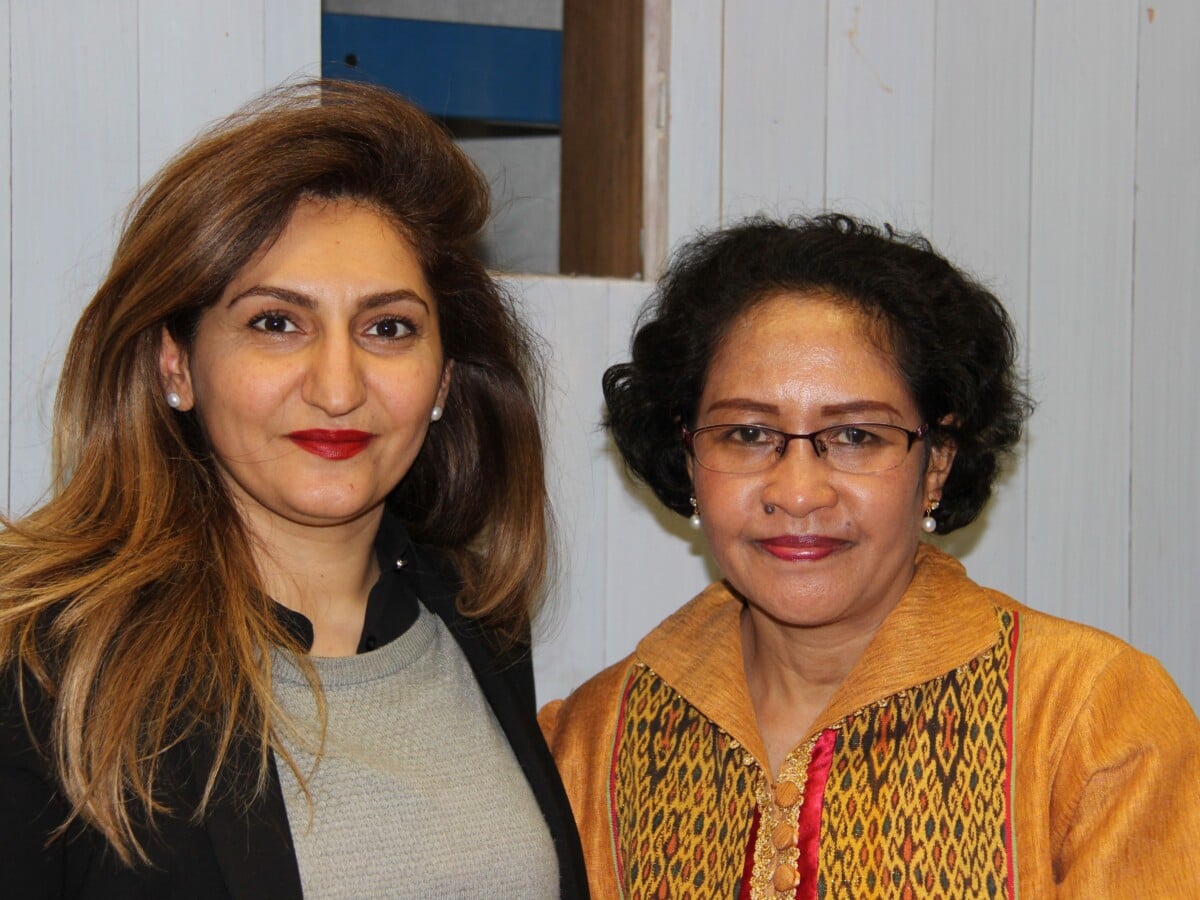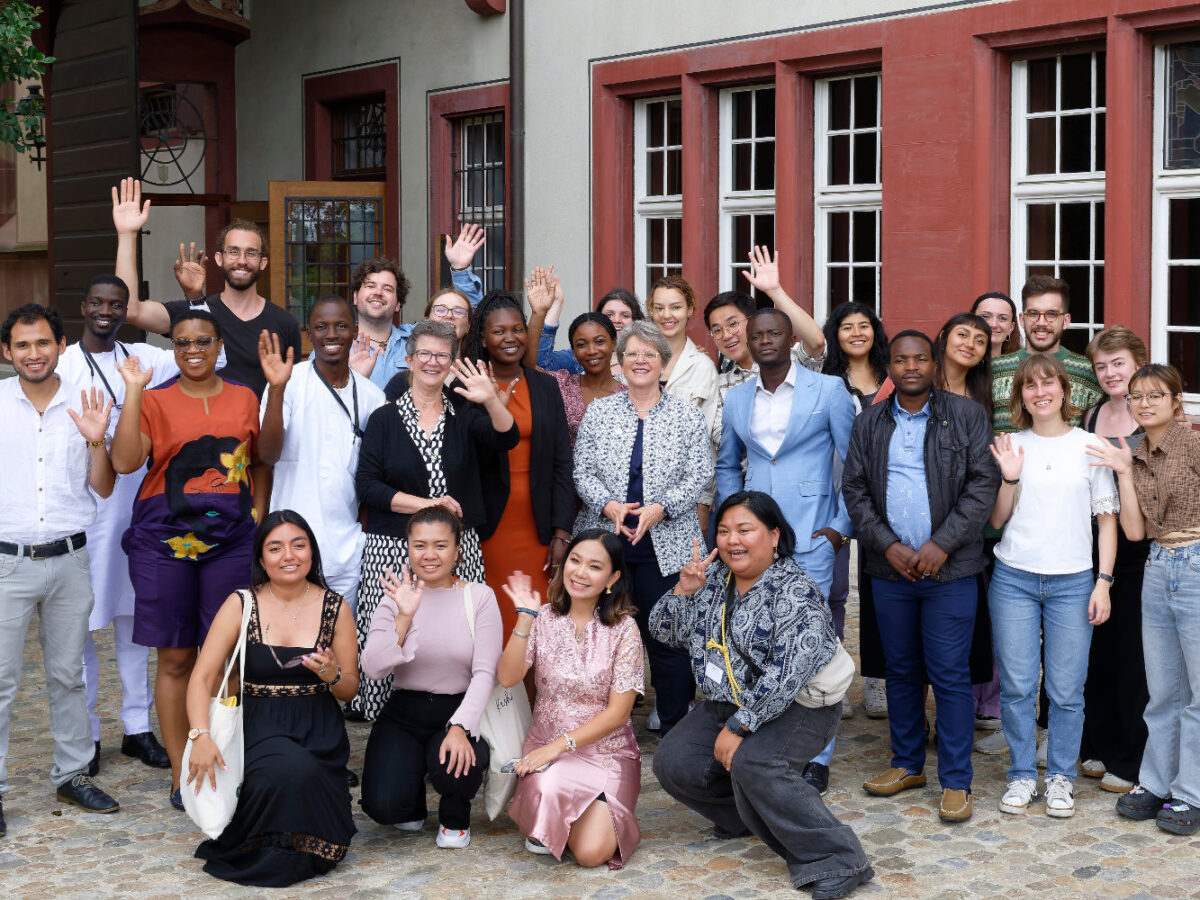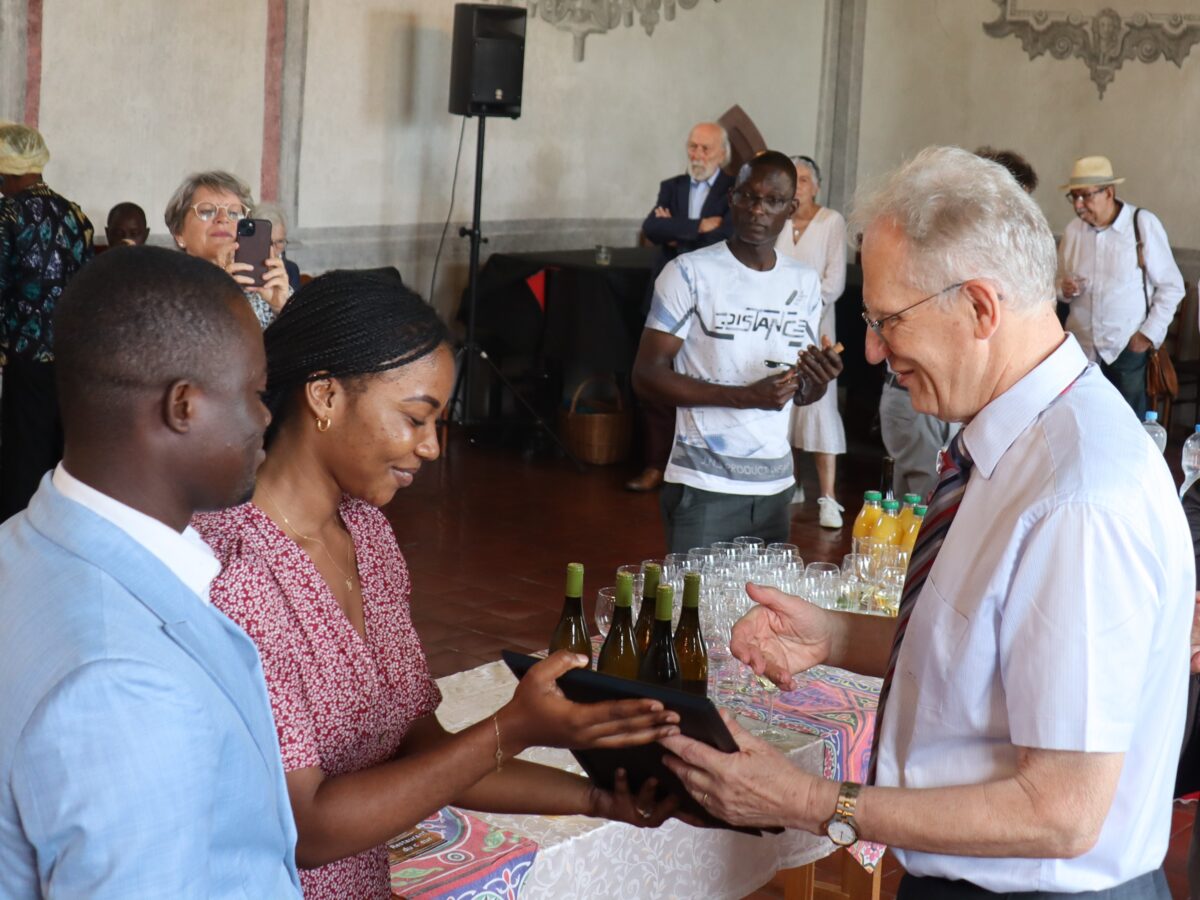The two women meeting for the first time at Mission 21's Dialog International event come from different worlds. Mery Kolimon is the leader of one of the largest churches in Indonesia. She lives in West Timor, a region from which people flee to other countries to escape poverty. She has just been awarded the International Sylvia Michel Prize for her leadership role in the church.
Sibel Arslan, a lawyer, has been a member of the National Council for the Green Party since 2015. She came to Switzerland from Turkey when she was eleven years old. Now, as a politician, she influences, among other things, the laws that regulate how people who immigrate to Switzerland are treated.
So one comes from a country that people are leaving, the other from one where refugees are seeking refuge. And yet they are both fighting for the same thing: advocating for migrant women and seeking ways to empower women who find themselves in extreme situations.
Stories of wounds and vulnerability
In her work, Mery Kolimon is primarily confronted with the issue of human trafficking. "Stories of migration are often stories of wounds and vulnerability," she said at the Dialog International panel. From her homeland of West Timor come the most victims of human trafficking in all of Indonesia, about 76 percent are women. Mery Kolimon is committed to helping them. For example, with a recently opened women's shelter in the city of Kupang, with prevention work and trauma work. These are services for those directly affected, but in her position as church leader, Mery Kolimon also works on a second level. "To bring about change in society, the church must also change," she says, "from a church that thinks it knows everything to a church that wants to learn new things. And from a church that is content with the status quo to a church that also takes risks."
Struggle for answers
Sibel Arslan, too, knows both the work with migrant women and the work on a structural level. Emigration and immigration are part of her biography. At the same time, she fights in parliament to ensure that the specific situation of migrant women is taken into account. "What happens to women who are turned back at the border even though they are 36 weeks pregnant? What rights do women have who have followed their husbands to Switzerland from abroad and get divorced here because the husband abuses them?" With questions like these, politicians are struggling to find answers.
Learn to lose - and move on
The result is not always what Sibel Arslan wants: "I lose again and again. But I've learned to deal with it and move on," she says. It's an experience and skill she shares with Mery Kolimon. "When a young woman comes back to her home in a coffin, it's terrible and there's nothing we can do for her," Kolimon says. "Still, we have to keep fighting. Even small steps are important." One of the small steps is sharing - Mery Kolimon and Sibel Arslan did it, together with the audience at "Dialog International," which asked lively questions after the presentations and was able to take home a lot of food for thought.
Text and photo: Miriam Glass, Public Relations Team






